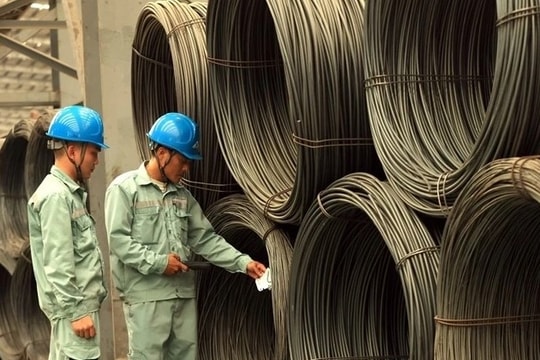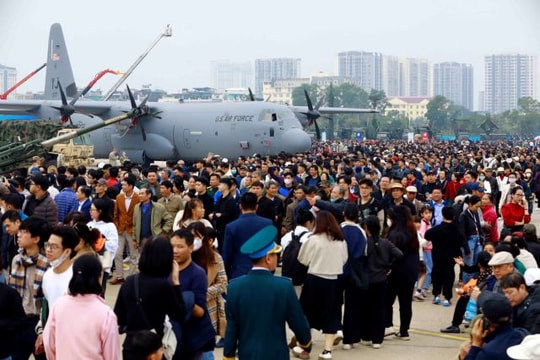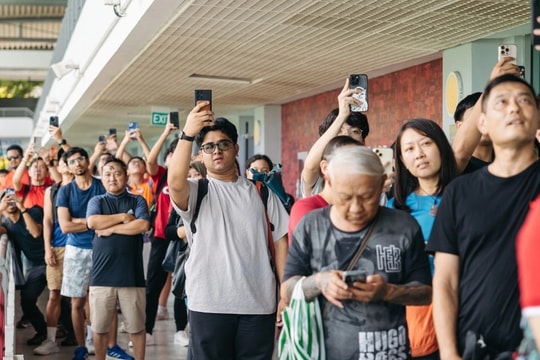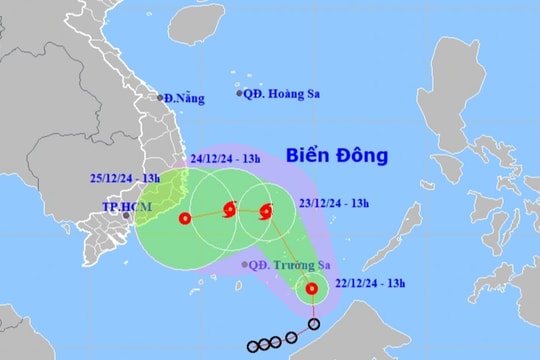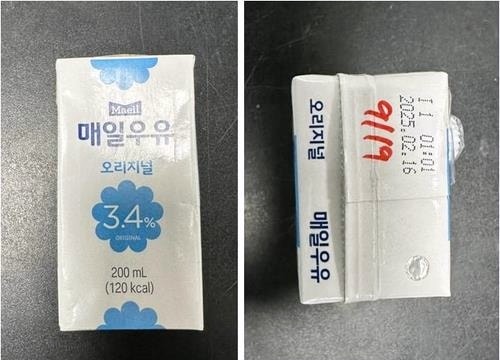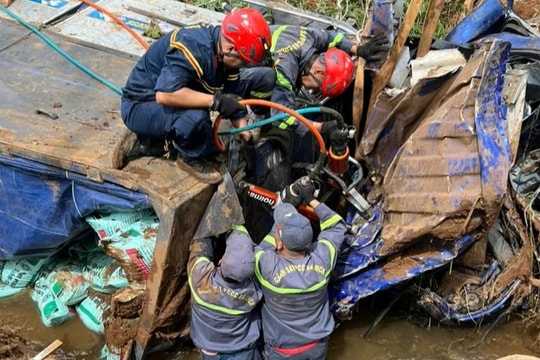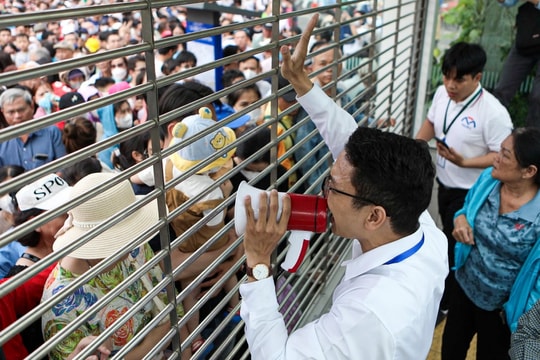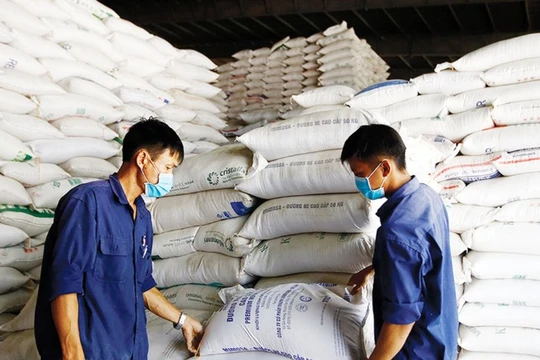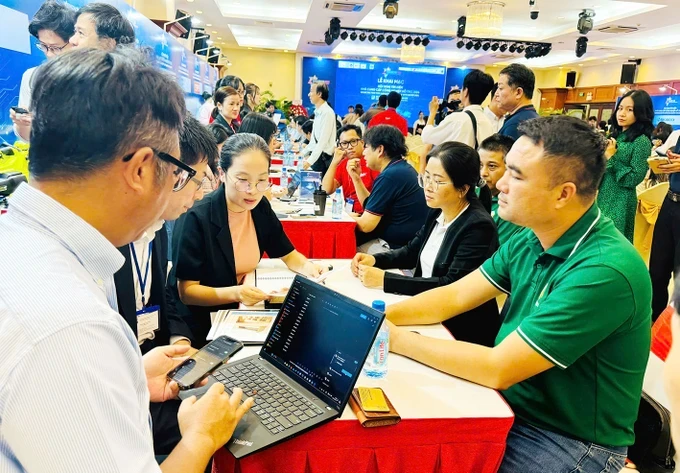
Deputy Director Le Nguyen Duy Oanh of the HCMC Supporting Industries Development Center (under the municipal Department of Industry and Trade) revealed that the event had received 300 connection registrations from 20 FDI enterprises and 130 domestic supporting industry product manufacturers.
The supply chains primarily originated from countries such as the US, Japan, and the Republic of Korea. Oanh added that at previous sourcing fairs, over 1,800 direct connections were established, and numerous Vietnamese enterprises successfully integrated into the global supply chains of FDI making end-products. However, a notable feature of this year's fair was the FDI enterprises’ search for supporting industry product groups in emerging technology sectors such as microchips, aerospace, and healthcare.
Director of Nextern Vietnam Co. Ltd. Nguyen Ba Tin emphasized the immense potential for the development of Vietnam's supplying industry. For instance, the Nextern Group, with five companies and three product research centers in the US, Hong Kong, and Vietnam, had achieved nearly 100 percent localization in the procurement of common materials such as plastic molded parts, rubber, metal processing, metal casting, and springs within five years of its presence in Vietnam.
However, products requiring advanced technology and complex techniques, such as liquid crystal displays, lithium batteries, robots, medical equipment, home care products, and products related to precious metals, remained reliant on imports.
In practice, through these networking events, Vietnamese manufacturers of supporting industry products have had opportunities to showcase their capabilities and participate in supply chains. Conversely, FDI enterprises and large-scale industrial manufacturers have increased their domestic sourcing rates, particularly in the context of global supply chain disruptions that necessitate diversified supply sources and a preference for local suppliers.
According to Director Tin, joining a corporate supply chain, especially a medical equipment supply chain, required companies to meet stringent standards such as product functionality testing, quality assurance, and clinical trials. Many Vietnamese enterprises lacked experience in producing hi-tech products and were unable to manufacture core components, resulting in low added value and hindering deep integration into global supply chains.
It is, therefore, necessary for enterprises to thoroughly understand the standards of the industry they aimed to supply, assess the suitability of their equipment and technology, and demonstrate compliance with partner requirements.
Other experts attending the fair also highlighted the ongoing global manufacturing shift, with Vietnam emerging as an attractive destination. Vietnam possesses numerous advantages, including competitive labor costs, free trade agreements, improving infrastructure, attractive investment incentives, political stability, and a favorable geographical location.
Conversely, Vietnam faces challenges such as the need to develop a high-quality workforce, upgrade infrastructure, and meet international standards. Hence, concerted efforts from the central government to local authorities, across all levels and sectors, along with the endeavors of enterprises, are critical to enhance supply capabilities and achieve deeper integration into global supply chains.
In his speech in the event, Vice Chairman Vo Van Hoan of the HCMC People’s Committee shared that in recent years, HCMC has facilitated the connection between industrial manufacturing enterprises in the locality and multi-national corporations, enabling them to receive technology transfer, production management experience while gradually modernizing domestic production.
Consequently, the former can confidently participate in global supply chains and accompany enterprises in the process of technological innovation and production expansion.
Through the annual "Sourcing Fair for Supporting Industries," enterprises have opportunities for practical experience, thereby enhancing the effectiveness of connections between Vietnamese supporting industry manufacturers and FDI enterprises, as well as end-product manufacturing ones. Domestic manufacturers have also grasped market opportunities, accessed, and progressively participated in global supply chains, particularly small and medium-scale enterprises.
Chairman of the HCMC Business Association Nguyen Ngoc Hoa commented that the dual transformation, encompassing green and digital transformation, will enable enterprises to keep pace with new development trends. However, to achieve this, support from the authorities plus large IT and science businesses is essential. Enterprises, on their part, need to establish intelligent factories aligned with current competitive trends.
HCMC is focusing on developing its hi-tech industry, innovation, regional connectivity, and shifting production towards automation and the use of clean and green energy, aiming for sustainable development. The city has also implemented policies to attract new investments, encouraging enterprises to transition from traditional manufacturing models to intelligent factories. Additionally, the city has provided interest rate support of up to 100 percent and a funding level of up to VND200 billion (US$8 million).
This presents an opportunity for enterprises to invest in innovation, shift towards intelligent manufacturing, and keep pace with current economic development trends.





